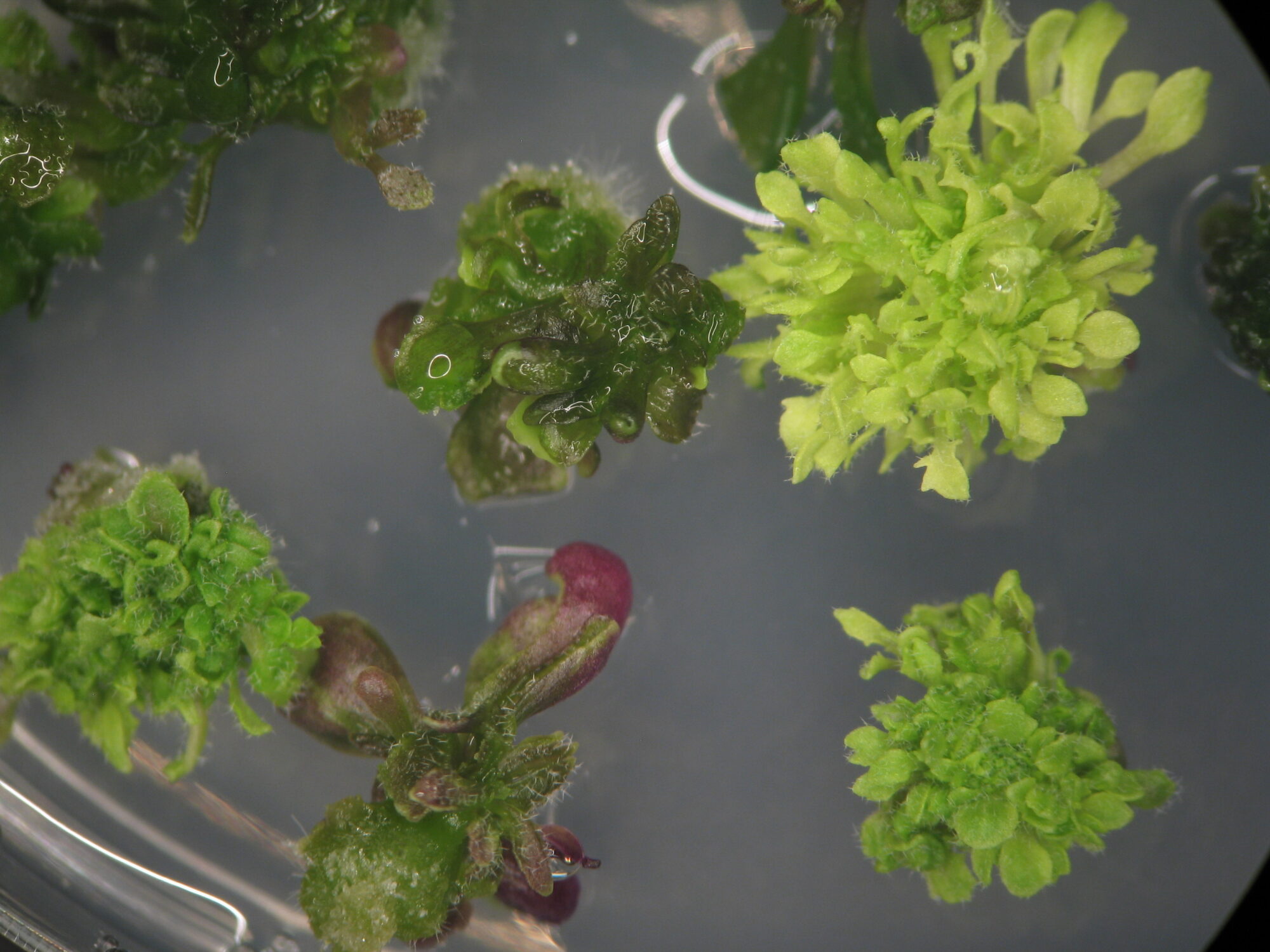Research area
Somatic embryogenesis (SE) is a plant-specific developmental process that involves the induction of the embryogenic programme in already differentiated somatic cells, which results in the formation of somatic embryos that are capable of regenerating complete plants. Besides its usefulness for efficient in vitro plant regeneration, SE provides a unique system to study the molecular mechanisms controlling developmental plasticity of plants somatic cells.
Our research aims at understanding regulatory pathways that contribute to the SE induction. To this end, we work with the plant model Arabidopsis and the crop plant Hordeum vulgare and we study the genetic and epigenetic mechanisms underlying the induction of SE in this plants.
Main objectives:
- Identification and functional characterization of transcription factor genes and miRNAs that control SE induction
- Extending a role of auxin in SE induction
- Deciphering a role of stress (in particular, oxidative stress) in SE induction mechanism
- Unrevealing a role of epigenetic processes, in particular DNA methylation and histone acetylation, in embryogenic reprogramming of somatic plant cells.
Analytical tools:
We use variety of classical genetic and genomic tools to decipher a regulatory network engaged in control of SE induction including:
- mutant analysis
- genetic transformation of Arabidopsis and H. vulgare
- gene expression profiling with RT-qPCR
- mature miRNA detection with RT-qPCR
- Whole Mount in situ Hybridization (WISH)
- Chromatin Immunoprecipitation (ChIP) for epigenetic modifications in plants
- immunohistochemical analysis of epigenetic modifications in plants
- isolation of nuclear proteins and enzymological analysis with ELISA test
- yeast one hybrid for protein-DNA analysis
- plant in vitro culture techniques
- Fluorescent Activated Nuclear Sorting (FANS)
